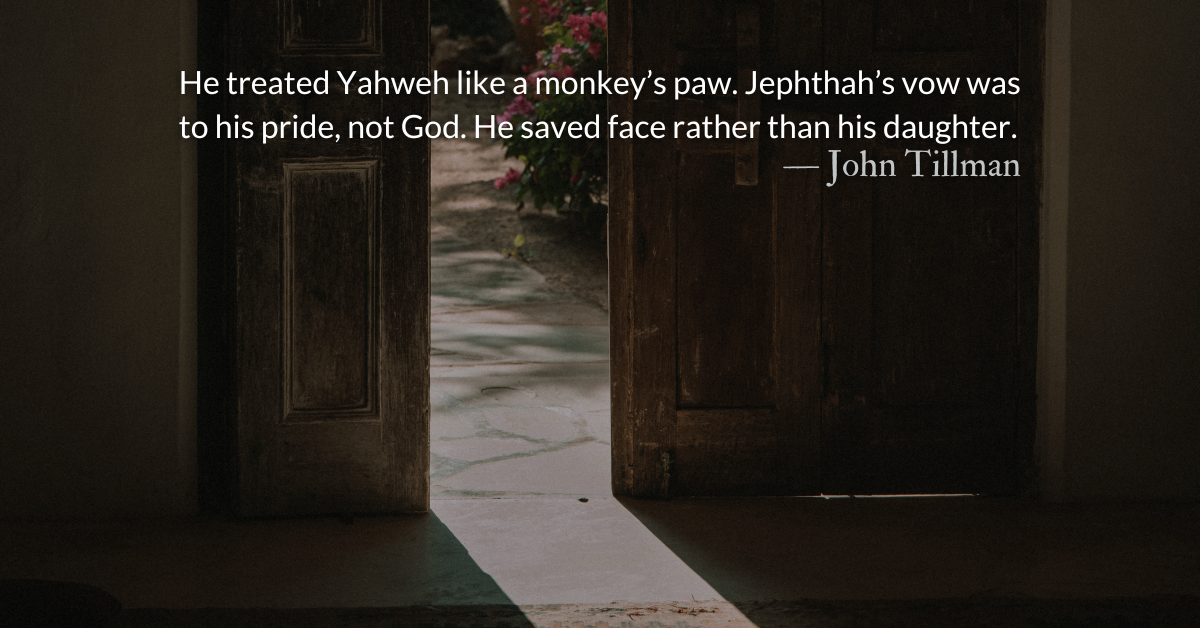Links for today’s readings:
Read: Judges 14 Listen: (3:35) Read: Hebrews 1 Listen: (2:15)
Scripture Focus: Judges 14.2-4
2 When he returned, he said to his father and mother, “I have seen a Philistine woman in Timnah; now get her for me as my wife.” 3 His father and mother replied, “Isn’t there an acceptable woman among your relatives or among all our people? Must you go to the uncircumcised Philistines to get a wife?” But Samson said to his father, “Get her for me. She’s the right one for me.” 4 (His parents did not know that this was from the Lord, who was seeking an occasion to confront the Philistines; for at that time they were ruling over Israel.)
5 Samson went down to Timnah together with his father and mother. As they approached the vineyards of Timnah, suddenly a young lion came roaring toward him. 6 The Spirit of the Lord came powerfully upon him so that he tore the lion apart with his bare hands as he might have torn a young goat. But he told neither his father nor his mother what he had done. 7 Then he went down and talked with the woman, and he liked her. 8 Some time later, when he went back to marry her, he turned aside to look at the lion’s carcass, and in it he saw a swarm of bees and some honey. 9 He scooped out the honey with his hands and ate as he went along. When he rejoined his parents, he gave them some, and they too ate it. But he did not tell them that he had taken the honey from the lion’s carcass.
Reflection: Out of the Strong, Something Sweet
By John Tillman
In the middle of the Great Depression, with Hitler advancing in Europe, two sons of Jewish immigrants, from the Netherlands and Ukraine, created an iconic American hero—Superman.
In Superman, Jerry Siegel and Joe Shuster reimagined Moses cast on the water to be raised by a powerful princess as a powerful alien cast through space to be raised by poor farmers in America’s heartland. Superman is an alien immigrant from another planet with super powers.
However, what makes Superman heroic is not Kryptonian physiology but Kansan philosophy. His moral core is a greater power than his physical strength. In the most recent film version, Clark’s adoptive father tells him, “Your choices, your actions, that’s what makes you who you are.”
Despite some simplistic teachings that cast Samson as the Bible’s “Superman,” Samson is not Superman, nor is he a super man. Samson’s choices make him who he is. Those choices make him less like the prophet Moses and more like the plagues Moses called down.
Samson was an instrument of judgment but not an instrument of wisdom. As much as we might cheer for the mighty and wicked that he threw down, we must also mourn for the potential he wasted.
Samson is strangely similar to the apex-predator lion that he fights and kills. Samson’s line about the lion, “out of the strong, something sweet,” could be an unintentional prophecy about himself. The lion’s fate is a mirror of Samson’s. We might say, “Out of the destroyer, something just…Out of the sinful, something righteous.”
God consistently chooses imperfect vessels for carrying out his purposes. God is an expert at turning actions meant for evil into something good. (Genesis 50.20) That does not mean that we can act with impunity, like Samson did, following our lusts and anger.
We cannot blame “God’s sovereignty” for our choices or actions. “God made me this way” is no more a defense for the anger of an executive who screams at workers than it is for the lust of a philanderer who takes sexual advantage of others.
If our choices make us who we are, many of them make us sinners. However, the most significant choice that affects our identity is accepting the gospel and being conformed to the image of Jesus. (Romans 8.29) We trust in the Son of Man rather than any super man. It is out of his strength we have the sweetness of the gospel.
Divine Hours Prayer: A Reading
Jesus taught us, saying: “Come to me, all you who labor and are overburdened, and I will give you rest. Shoulder my yoke and learn from me, for I am gentle and humble in heart, and you will find rest for your soul. Yes, my yoke is easy and my burden light.” — Matthew 11.28
– Divine Hours prayers from The Divine Hours: Prayers for Summer
by Phyllis Tickle
Read more: Underdogs Gone Wrong
Leaders called and used by God often “go wrong,” yet biblical authors rarely feel obligated to point it out. They expect us to notice.
Read more: Don’t Empower Villain Eras
The problem of sorting the Bible into “heroes” and “villains” is forgetting that the same person who is heroic in one moment can be villainous in another.






